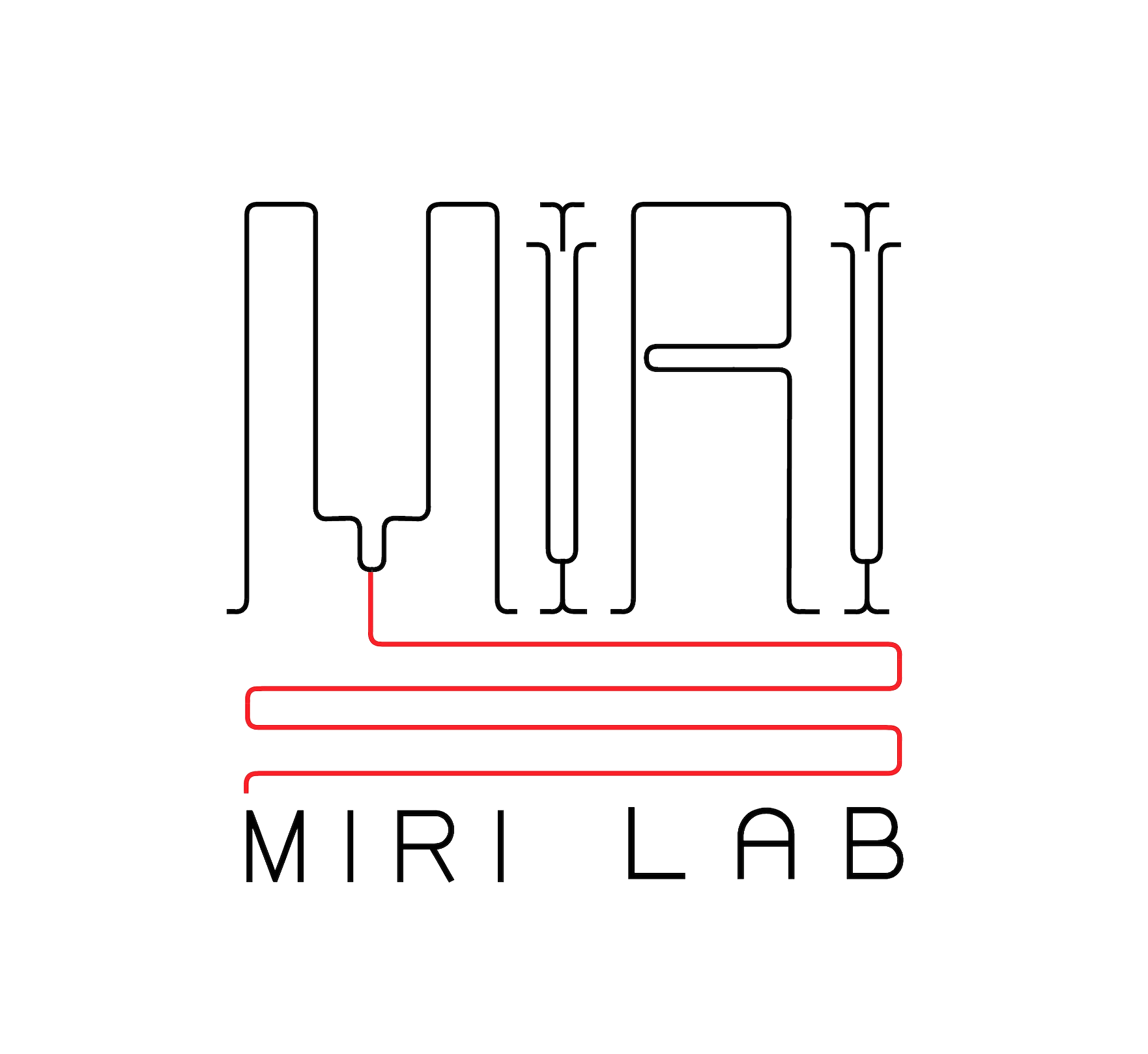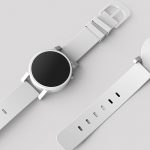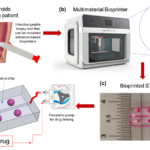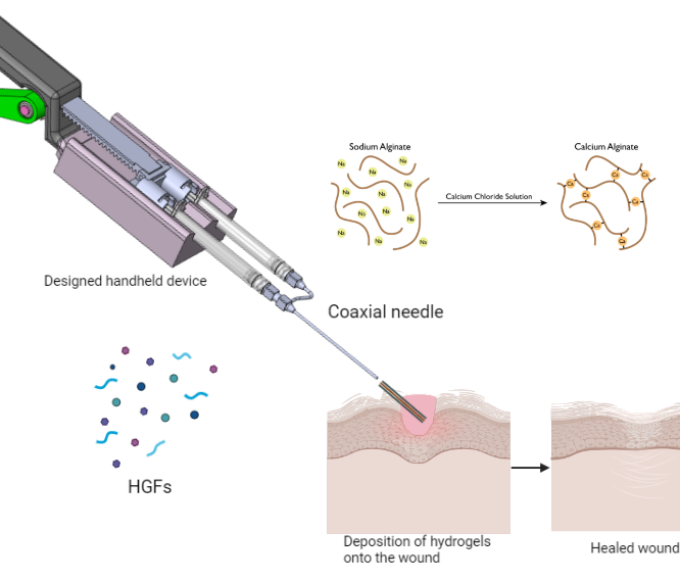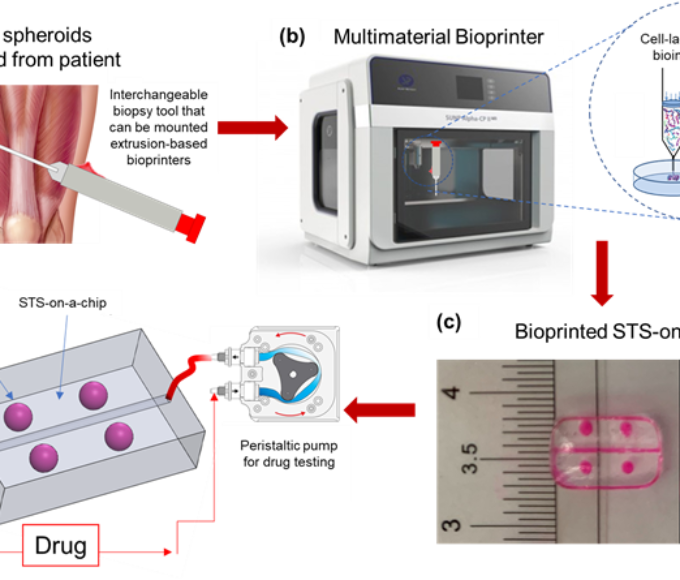Current high-throughput screening (HTS) applies two-dimension (2D) standard well plate which requires complex handling equipment and automated system. Microfluidic cellular platform resolves the issues and as well provides reduced sample quantity and integration of cells. Conventional microfluidic device requires sequential integration of layer for complex structures making the fabrication process difficult and labor intensive. We intend to apply a patented (Patent Pending) multi-material 3D bioprinter to print hydrogel-based microfluidic platform to fabricate organ-on-a-chip and microfluidic device tool for high-throughput screening. The proposed work employs novel biofabrication method and hydrogel engineering to create a tool for developing effective therapeutics. The technology available allows rapid and continuous fabrication of microfluidic device which do not require post processing. The approach will allow us to fabricate organ specific microfluidic chip along with accessories such as electrodes within the device that may allow high-throughput detection of molecules. The hydrogel microfluidic chip a fluid-saturated solid network will ideally provide a proper cell-friendly environment and other biomimetic features. Additionally, these microfluidic platforms are anticipated to provide rapid analysis of numerous chemicals, biochemicals, or pharmacological tests in parallel in a real time setup.
